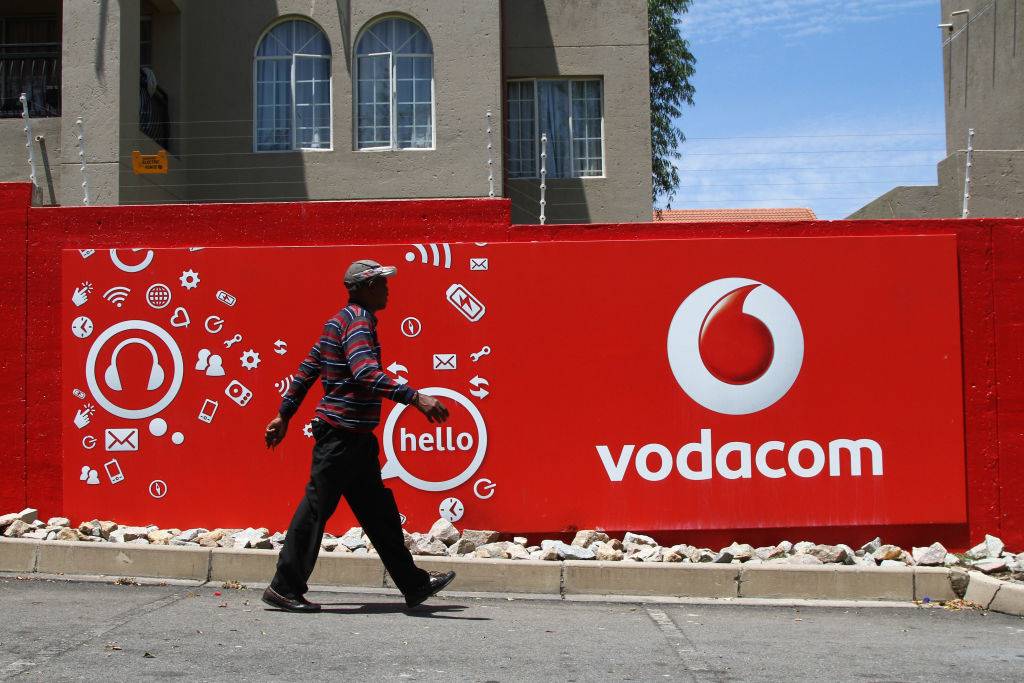Dealing with this sector will spur growth and have an immediate benefit for the majority, writes Hlengani Mathebula
There’s one reform measure that government can implement without getting the masses out on the streets in protest.
It is also guaranteed to deliver benefits for the majority of South Africans.
The reform of the telecommunications sector has to be one of the lowest-hanging economic transformation fruits.
All it requires is the implementation of the various reform proposals government has been talking about for the better part of the last decade.
However, it also requires a well resourced sectoral regulator.
By that I mean a regulator with the requisite skills and a lot of regulatory bite.
In this regard, the Competition Commission’s demand that telecoms giants Vodacom and MTN should cut data prices by between 30% and 50% or face prosecution is a godsend for government.
The commission called on all cellphone operators to provide all prepaid subscribers with free daily data to ensure all citizens have access to some data.
It also recommended measures to enhance competition on pricing among the operators.
These recommendations cover the cost of roaming as well as a requirement that the two telecoms companies keep a separate set of financial accounts for their wholesale network infrastructure.
The commission’s proposals are a good example of what I describe as the low-hanging fruits of reforming the telecommunications sector.
What has been recommended is not likely to result in mass political mobilisation against government.
It’s unlikely that the masses will take to the streets in protest against these proposals.
The only opposition will come from the companies which stand to lose their fat profits should government succeed in pushing through the reforms.
The response of the two telecoms giants suggests they will contest the commission’s findings and recommendations.
They both shifted blame for high data costs to delays by government in releasing the spectrum.
This could backfire.
First, the public has for many years been complaining about high data costs and will most likely hit back at the cellphone companies through social media and other platforms.
The recent experience of a backlash on social media forcing insurance companies to settle claims they had rejected is a good example of the power of social media.
Second, the public anger could spur on government to come out fully in support of the commission.
GOVERNMENT PRESSURE
To strengthen the commission’s hand, government must, if necessary, use its buying power and that of state-owned enterprises to apply pressure on the cellphone companies to comply with the recommendations.
Experience with successful reforms in other countries shows the value of implementing them by starting with low-hanging fruit.
Such an approach helps create a strong base of supporters for reforms.
This is done by delivering the benefits of economic reform as early as possible in the reform process.
Economic reform is always politically fraught, largely because sectors of society that benefit from the status quo resist change.
The current beneficiaries also tend to be well organised whereas the future beneficiaries are not.
The other risk with the economic reform process is that it runs out of political steam, especially if the electorate does not see its immediate benefits.
It is therefore important that the drivers of reforms go for the lowest-hanging reform fruits to create and maintain popular support for economic transformation.
Reforms that get the masses on to the streets and whose benefits are not immediately obvious generally take longer to implement in countries where politicians have to hit the election campaign trail regularly.
If done well, the reform of the telecommunications sector can benefit the majority of South Africans.
Cellular penetration is high in South Africa, with almost every household having at the very least a basic cellphone.
But South Africa ranks among the most expensive when it comes to mobile data costs.
There is fibre, but its roll-out remains, for financial reasons, limited to parts of the country where the well heeled live.
Reforms that can free the potential of the sector and effectively reduce the costs of broadband and data, should benefit millions of South Africans.
For example, the mobile call termination regulations produced substantial benefits.
The National Treasury’s document quotes a study by the Centre for Competition, Regulation and Economic Development at the University of Johannesburg, which illustrates the benefits to consumers of the call termination regulations introduced in 2011.
These regulations resulted in consumer savings of more than R30 billion in 2014.
On the other hand, the volume of call minutes increased by 23% between 2010 and 2014, compared with a 10% growth in the period between 2006 and 2010.
What needs to be done is clear. Part of it is the release of more spectrum, something government has promised to do for many years.
South Africa knows only too well what else needs to be done to reform the telecommunications sector.
These reforms were outlined as part of the economic policy reform proposals published by Treasury last month.
Treasury listed a number of measures, including the reform of the telecommunications sector, that it deemed necessary to give South Africa’s growth rate a lift.
Read: Data must fall but spectrum won’t solve the problem
RELEASE THE SPECTRUM
Spectrum, according to Treasury, should be auctioned, but in a manner that results in a more competitive market.
Conditions to be attached to the allocation of spectrum should include provisions for universal service and access as well as small business set-asides for a wholesale open access network.
Broadband, on the other hand, should be rolled out at a pace that is affordable to underserved areas.
This can be achieved through a more competitive telecoms sector and lower data prices.
However, it’s not just a question of releasing more spectrum for the telecommunications companies to profit handsomely.
The how, or what companies which get allocated the spectrum do with it, matters too.
This is where a strong regulator comes in.
It is common knowledge that the Independent Communications Authority of SA (Icasa) lacks the necessary capacity to whip the country’s telecommunications companies into line.
But this can be fixed.
Government can address Icasa’s weakness in two ways: through a short-term and a long-term plan.
In the short-term, government can seek help internationally and locally for expertise to be seconded to assist Icasa.
Treasury says modernising the country’s network industries, including transport and communications, can boost competitiveness and inclusive growth.
Network industries are not only the backbone of a country’s economy, they also meet basic and constitutional needs and connect people to information.
They create jobs in their own right, but through being an enabler for other sectors of the economy they also contribute indirectly to job creation by other sectors.
Government should therefore prioritise reform of the telecommunication sector. The benefits of doing so are surely more than the costs, including political costs.
Treasury quotes a study that shows that improving broadband penetration by 10% results in a 1.35% increase in GDP growth in developing countries and a 1.19% increase in developed economies.
But as the Treasury document makes clear, the reform of the telecommunications sector, and the economy in general, has to take into account the need to open up the economy to new players.
In this case, new entrants include those businesses that are owned and controlled by black South Africans.
Economic reform in South Africa is not only about reducing the economy’s cost of operating. It is also about creating space for businesses owned by African people.
The benefits of the telecoms sector reform will go beyond those relating to economic growth.
They will include lowering telecommunication prices for the majority of South Africans.
That can only be good for politics too, because this will create room for other reforms.
Mathebula is a former chief officer responsible for strategy and communication at thee SA Revenue Service; group head: strategy and communications at the SA Reserve Bank; and chairperson of the Black Business Executive Circle
 | ||||||||||||||||||||||||||
Get in touchCity Press | ||||||||||||||||||||||||||
| ||||||||||||||||||||||||||
| Rise above the clutter | Choose your news | City Press in your inbox | ||||||||||||||||||||||||||
| City Press is an agenda-setting South African news brand that publishes across platforms. Its flagship print edition is distributed on a Sunday. |




 Publications
Publications
 Partners
Partners










